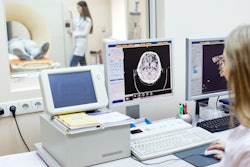Thursday, November 29 | 11:30 a.m.-11:40 a.m. | SSQ16-07 | Room S504AB
Computer-aided detection (CAD) based on deep learning can help detect unruptured cerebral aneurysms from MR angiography scans, according to researchers from Japan.In this presentation, Dr. Saori Koshino from the University of Tokyo will present details from retrospectively analyzed MR angiography (MRA) datasets, which included 40 scans with one or more unruptured cerebral aneurysms and 60 scans with no unruptured cerebral aneurysms. The researchers asked 10 expert radiologists and 10 nonspecialists to interpret the images for cerebral aneurysms and indicate their confidence levels for each detected lesion with and without CAD.
The CAD algorithm developed by Koshino and colleagues featured volume reconstruction from MRA images, vessel segmentation, key point extraction based on a principal curvature method, and the ranking of key points using a deep-learning method from a convolutional neural network.
Using the CAD software, nonspecialists benefited the most, with a statistically significant increase in average sensitivity from 68% to 80%. The sensitivity gain for radiologists was more modest -- and not statistically significant -- rising from an average of 90% to 93%. Thus, the deep learning-based CAD software also can be used as an educational tool for nonspecialists, according to the researchers.



.fFmgij6Hin.png?auto=compress%2Cformat&fit=crop&h=100&q=70&w=100)




.fFmgij6Hin.png?auto=compress%2Cformat&fit=crop&h=167&q=70&w=250)











